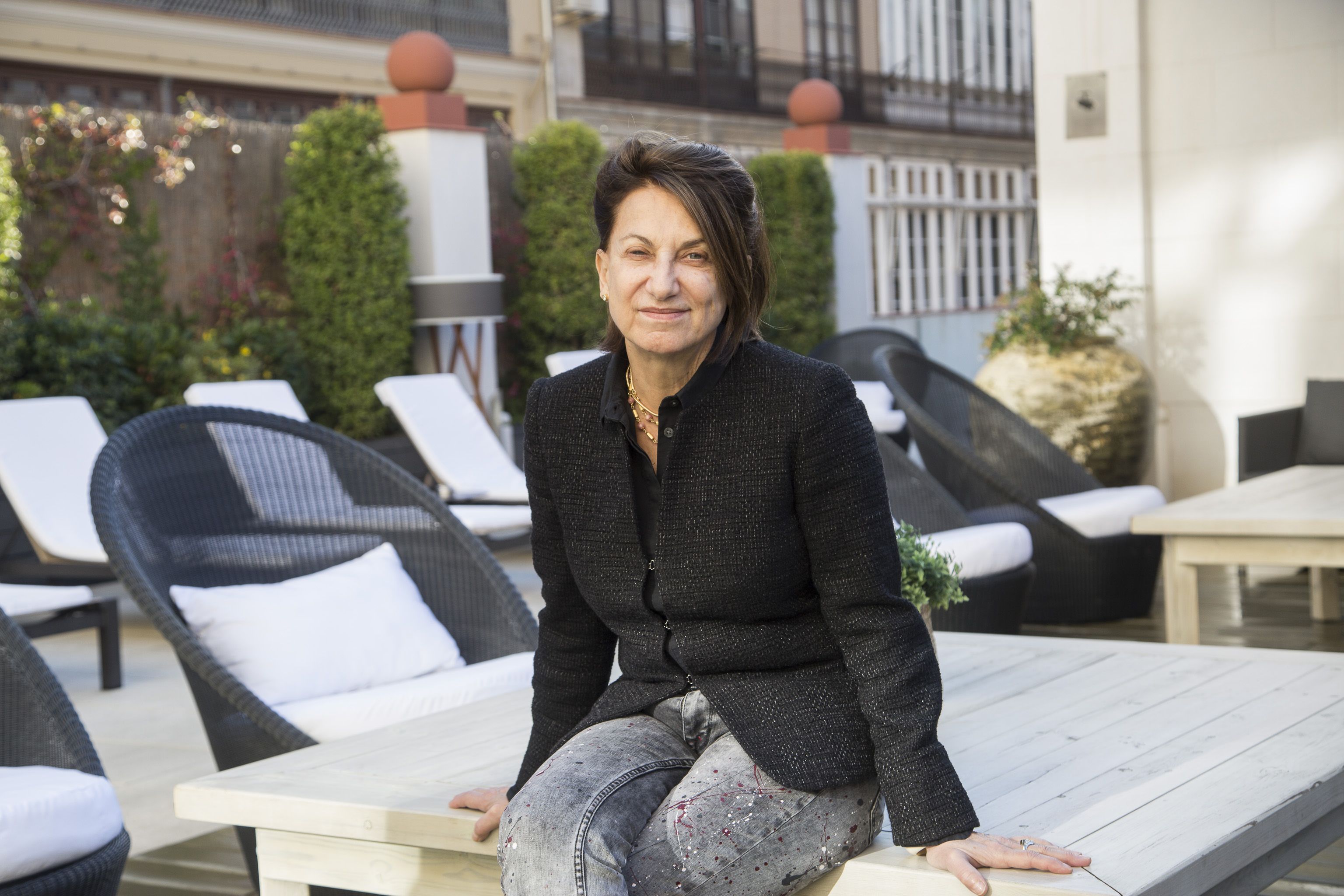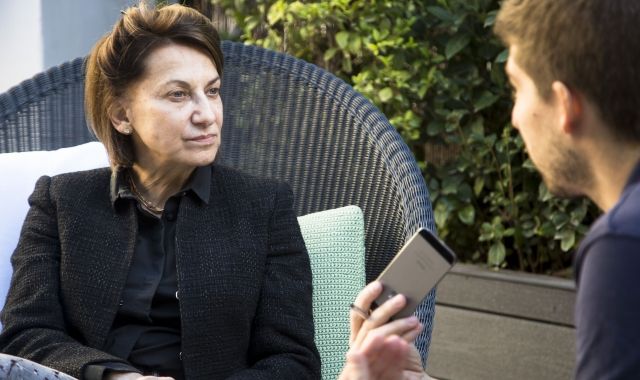
Loretta Napoleoni (Rome, 1955) is an economist, writer, journalist and expert political analyst into the financing of terrorism. Napoleoni is in Barcelona for the 30th anniversary of Barcelona Activa and a conference on the social transformations that have made an impact on the economy, the world of work and the public. "I have come to Barcelona to talk about the Third World War, about globalisation, and it seems I have arrived at a fascinating moment, because here there is a very interesting example of why globalisation does not work," says the expert.
How did we get here?
In the past 10 years and since the publication of my book, Rogue Economics, my conclusion is that the country that has really got the most out of this process is China. They are the victors of globalisation and over the West in general. Because the problem is not economic, it is political. The nation-state structure does not work and here we have an example: Spain as a nation-state worked 20 or 30 years ago, but not now. And the the proof is what is happening in Catalonia for political reasons, but also economic ones.
How does that work?
The economy exports production from Europe to China, relocation, turning a real economy into a financial economy. However, here there are bastions of production and the nation-state wants to take resources from the likes of Catalonia or Lombardy, to give another example, but in truth it is a global conflict in the West.
"Despite the progress, it is the first time we have seen inequalities persist and, moreover, in a post-industrial society"
This is what you call the rogue economy?
It is not a new phenomenon, it is a phenomenon we see every time there is a radical change like, for example, the Industrial Revolution. This was a period of rogue economics and that is when the economy goes faster than the politics. That then produces a mismatch, an imbalance between the two and inequality shoots up. That is how there are now a small group of men in the world that have more money than half of all the poorest put together. In the long run, we always see progress for the majority of people and we are now seeing that in China, where there is inequality, but also a population that is prospering and becoming middle class. That is not happening in the West. It is the first time we have seen such inequality persist and, moreover, in a post-industrial society.
You are well-known for quantifying the terror economy.
I calculated it after 2001 and I think that today it is larger than before, when it made up about 3% of the world economy. That includes the illegal economy, organised crime, drugs, prostitution, and so on. I think that now it makes up 5% or 6% of world GDP. We are talking about a very high number that in reality is an economic system used by terrorism, like for example in Syria, where groups control territory and the population. Islamic State has a similar organisation to that of western states, with taxation to bring in revenue, legal structures, etc.
"Today the terror economy makes up between 5% and 6% of world GDP"
How is terrorism organised?
Terrorism is organised like a company or like a state. There are no differences, the economic system is the same and parallel to the official one.
And has terrorism evolved alongside the economy?
Yes. The economy of terrorism has evolved like our economy. After the Second World War, during the Cold War, groups appeared fighting for the Soviets or the Americans and funded by these states. Later, in a different atmosphere, we find ETA or the IRA, which was nationalist terrorism. Here we see the privatisation of terrorism. They are organisations that carry out activities, both legal and illegal, to finance themselves. The latest stage is globalisation.
Can you give an example of the financing strategy?
In Northern Ireland, the IRA controlled all transport services. The taxis paid taxes to the terrorists. Or charities were infiltrated so that they ended up financing terrorist activities. Not to mention the revolutionary tax.

Loretta Napoleoni during the interview | Àngel Bravo
Were ETA or the IRA funded in the same way as Islamic State is?
No, Islamic State is a different case. ETA charged a revolutionary tax, but it did not control territory like ISIS does. It is something the Mafia also did: if you don’t want your shop smashed up, you pay. In Islamic State’s case, the people paid taxes to cover such needs as administering the schools or markets. In this case we can talk of taxation. The revolutionary tax was in reality extortion.
Do you think that the terror economy can be beaten or do we have to live with it?
I don’t think the terror economy can be eliminated if the terror is not eliminated. In this sense, the case of ETA is very interesting: it was a predatory economy which led a lot of industrial firms to leave the Basque Country. In the end the solution came through talks. Just like with the Mafia or the IRA. The terror economy cannot be eliminated, it has to be negotiated.
"The terror economy has evolved like the official economy: first the state, then privatisation and finally globalisation"
In the last stage then we have the globalisation of the terror economy. We saw it this summer in Barcelona.
Barcelona was not attacked as a specific target, but rather because there is a critical mass of the Muslim population -who live and work here- and that provided recruits. It was easier to find candidates for the attack here than in Galicia.
The terror economy, Islamic State, do they have human resource departments?
I don’t think Islamic State do, it is more of an organic movement. What is happening in Europe is a European phenomenon. There is a part of the population that wants to be part of the global phenomenon, but can’t or is not allowed to or cannot achieve it. And this makes it more dangerous. If Islamic State was a centralised organisation like Al Qadea, then if it is broken up, it stops. But in truth it is not like that.
What is the answer?
The solution is negotiation and integration. Clearly there is racism and clearly there are cultural and reigious barriers, but I do not think that European states do not want to integrate this population. It is a long-term process and requires policies with perspective. But I do not think that right now governments have the money or the desire. For them, integrating immigrants is not the main priority, although in truth it is.